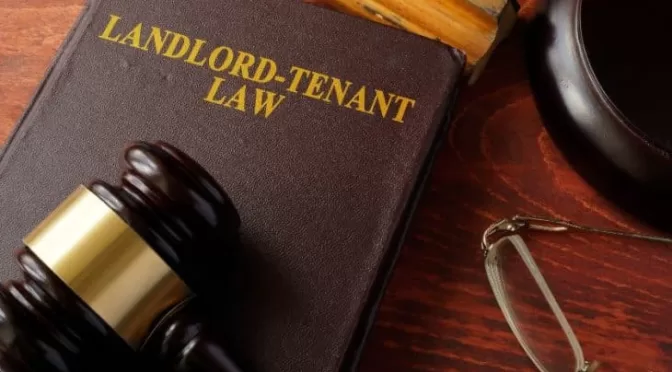I. Introduction
Parental kidnapping, a situation where one parent removes the children from their home state without the other parent’s consent, is a deeply distressing and complex issue. It not only involves emotional turmoil but also intricate legal aspects that require professional guidance. If you’re facing such a situation, it’s crucial to understand your rights and the legal steps you can take.
Reeves Lavallee, PC, a Worcester, MA-based law firm, specializes in family law and has a wealth of experience in dealing with cases of parental kidnapping. With their expertise and commitment, they can help navigate the legal landscape and work towards a resolution that safeguards the best interests of the child and the left-behind parent. This article aims to provide a comprehensive guide on what to do when your spouse removes your children from the state without your permission, and how Reeves Lavallee, PC can assist you throughout this process.
II. Understanding the Massachusetts Legal Aspects
To begin, it’s crucial to comprehend the legal implications specific to Massachusetts when your spouse removes your children from the state without your consent. In Massachusetts, this act can be considered parental kidnapping under Massachusetts General Laws Chapter 265, Section 26A, particularly if the removal interferes with your custodial rights.
Furthermore, Massachusetts, like most states, adheres to the Uniform Child Custody Jurisdiction and Enforcement Act (UCCJEA). This law stipulates that the child’s home state, where the child has lived for six months prior to the proceedings, has jurisdiction over custody matters.
For instance, if your spouse takes your child from Massachusetts to Connecticut without your permission, the Massachusetts courts still have the authority to decide on custody, provided Massachusetts has been the child’s primary residence for the past six months.
Understanding these legal nuances specific to Massachusetts is the first step in your journey towards resolving this distressing issue. In the next section, we will explore the immediate actions you should take if faced with this situation.
III. Immediate Actions to Take
If you find yourself in the unfortunate situation where your spouse has taken your children out of Massachusetts without your consent, there are several immediate steps you should consider:
- Contacting Law Enforcement: Report the incident to your local police as soon as possible. Provide them with all the necessary information and any evidence you might have, such as text messages or emails, that can support your claim.
- Gathering Evidence and Documentation: Start collecting any evidence that can prove your spouse took your children without your permission. This may include emails, text messages, voicemails, or witness testimonies. Also, gather important documents such as birth certificates, passports, and any existing custody agreements or court orders.
- Consulting with a Family Law Attorney: Reach out to a family law attorney who specializes in child custody disputes. A firm like Reeves Lavallee, PC, with their expertise in Massachusetts family law, can guide you through the legal complexities and help you take the necessary steps to resolve the situation.
Remember, acting swiftly and decisively can make a significant difference in the outcome of your case. In the following section, we’ll discuss how Reeves Lavallee, PC can assist you in such circumstances.
IV. Role of Reeves Lavallee PC
When dealing with a situation as distressing and complex as parental kidnapping, having a trusted legal ally by your side is of paramount importance. This is where Reeves Lavallee, PC steps in.
- With their deep understanding of Massachusetts family law and extensive experience in handling child custody disputes, Reeves Lavallee, PC can provide the necessary legal support and guidance. They can help you understand your rights, navigate the legal procedures, and strategize an effective plan of action.
- Over the years, Reeves Lavallee, PC has successfully represented numerous parents dealing with similar situations. For instance, they have helped parents obtain emergency custody orders, enforce existing custody agreements, and even secure the safe return of children taken out of state.
The expertise and dedication of Reeves Lavallee, PC can be invaluable in such challenging times. In the next section, we’ll delve into the legal procedures involved when your spouse removes your children from the state without your permission.
V. Legal Procedures Involved
When dealing with a case of parental kidnapping, there are several legal procedures that you may need to undertake. With the guidance of a law firm like Reeves Lavallee, PC, these steps can be navigated more effectively.
- Filing an Emergency Custody Order: This should be one of your first steps. An emergency custody order can help ensure the immediate safety of your children and may assist in their return.
- Filing a Hague Convention Application: If your spouse has taken your children to a country that is a signatory to the Hague Convention on the Civil Aspects of International Child Abduction, you may need to file a Hague Convention application. This international treaty provides a legal framework for the return of children who have been internationally abducted by a parent.
- Enforcing Child Custody Orders Across State Lines: If you already have a custody order in place, you’ll need to work with your attorney to enforce it in the state where your children have been taken. The UCCJEA can assist in this process as it provides for the enforcement of custody orders across state lines.
These legal procedures can be overwhelming, but with the right legal assistance, they can be effectively managed. The next section will discuss the importance of emotional coping and support during these challenging times.
VI. Coping and Support
Navigating through a situation of parental kidnapping is not only a legal battle but also a deeply emotional journey. It’s important to take care of your emotional well-being and seek support.
- Emotional Support During the Process: It’s normal to experience a range of emotions, from anger to sadness and fear. Consider seeking help from a mental health professional who can provide strategies to cope with these feelings and the stress of the situation.
- Importance of Family and Community Support: Lean on your family and friends for emotional support. They can provide a listening ear, help with practical matters, or simply offer a comforting presence.
- Resources Available for Parents Dealing with This Issue: There are numerous organizations and online resources dedicated to helping parents in these situations. They offer guidance, legal advice, and emotional support to parents dealing with the trauma of parental kidnapping.
Remember, you don’t have to go through this alone. Help is available, and reaching out can make a significant difference in your journey towards resolution. In the final section, we’ll recap the steps to take and the importance of legal assistance in such cases.
VII. Conclusion
When faced with the distressing issue of a spouse removing your children from the state without your permission, it’s crucial to act quickly and decisively. Understanding Massachusetts law, contacting law enforcement, gathering evidence, and seeking legal counsel are all essential steps in this process. With the expertise of a law firm like Reeves Lavallee, PC, you can navigate the legal landscape more effectively and work towards a resolution that prioritizes the well-being of your children.
Remember, while this journey may be challenging, you are not alone. With the right legal assistance and emotional support, you can navigate this difficult situation and work towards the safe return of your children.
VIII. Call to Action
If you’re facing this situation, don’t hesitate to reach out to Reeves Lavallee, PC for legal advice. Their expertise in Massachusetts family law and their dedication to their clients can provide the support you need. Y





